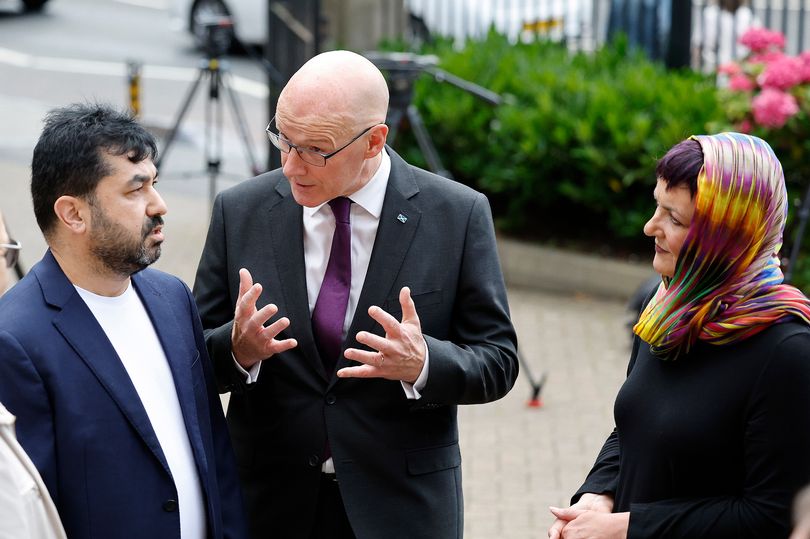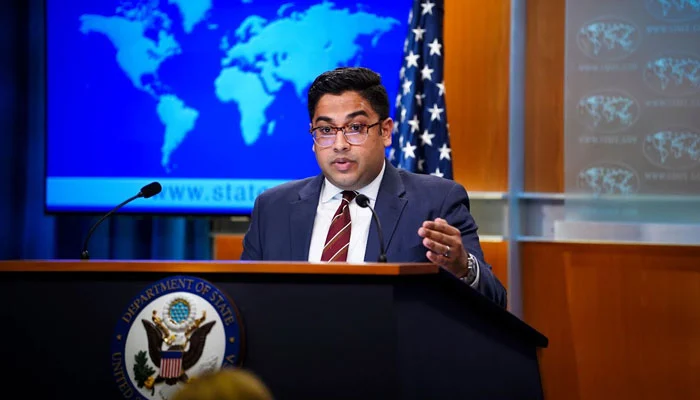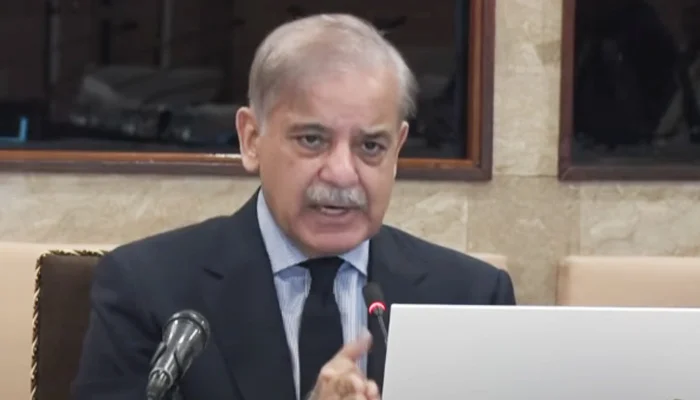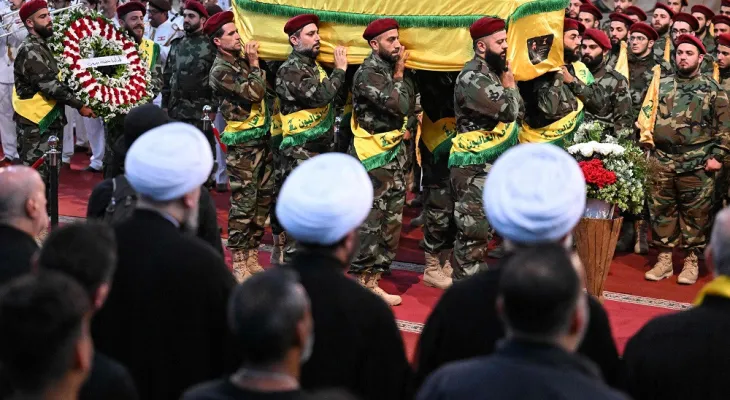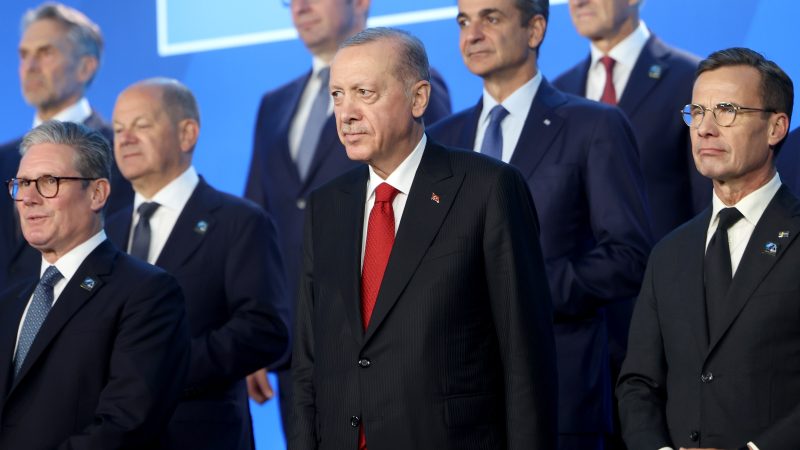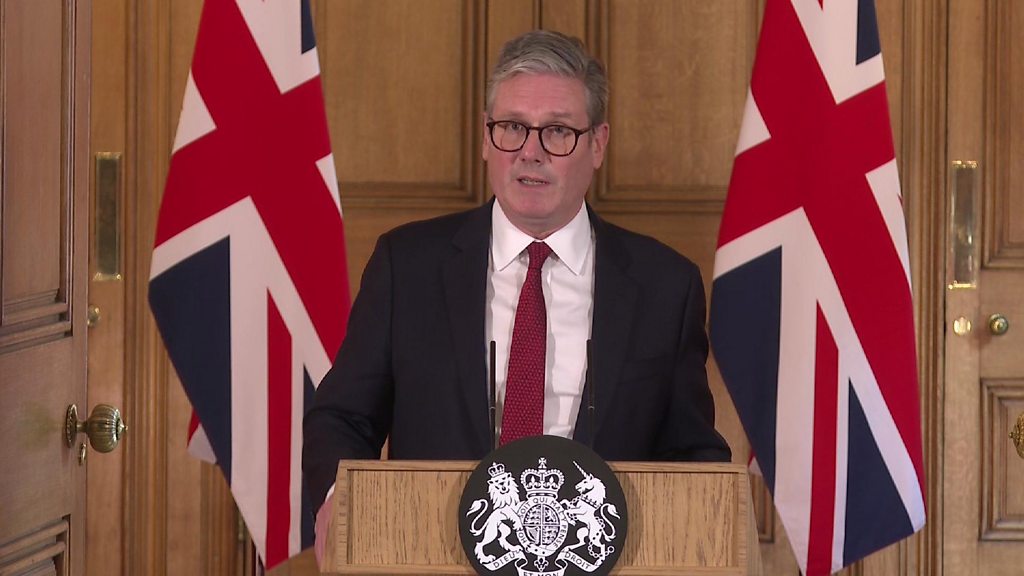The Muslim Council of Scotland says it has “full trust” that police protection in Scotland is strong enough, following disorder in some parts of the UK.
First Minister John Swinney met community leaders at Edinburgh Central Mosque to reassure them of the support of the Scottish government and police.
Police Scotland said there was no intelligence to suggest unrest would break out in Scotland after rioting in Belfast and several English towns.
It comes after three girls were killed in Southport last week – which was followed by false claims on social media that an asylum seeker was to blame.
Dr Muhammad Adrees, chairman of the Muslim Council of Scotland, said officers had offered reassurances that there was “no current threat”.
He said: “Police Scotland has already increased patrolling within the community, so just show the presence of the police to those who maybe try to jeopardise the safety of the community.
“People have a right to demonstrate and a right to free speech but they don’t have a right to damage people’s property or harm other people .
“We have full trust in Police Scotland and they are strong enough and equipped well to look after their peaceful citizens.”
Dr Adrees’ comments come after far-right activist Tommy Robinson posted about a “pro-UK” rally to be held in Glasgow’s George Square next month.
The English Defence League (EDL) founder, whose real name is Stephen Yaxley-Lennon, had earlier promoted the false claims about the Southport attacker.
He also promoted false rumours about the stabbing of a 21-year-old woman in Stirling on Saturday.
Police Scotland said the man arrested was white and from the local area.
Callum Fisher, 29, was charged with attempted murder and entered no plea at Stirling Sheriff Court.
At Edinburgh Central Mosque, John Swinney praised Police Scotland for acting swiftly to correct disinformation about the incident.
He said: “It’s absolutely vital that we all rely on quality information and where there is disinformation that is confronted.
“I wanted to reassure the Muslim community in Scotland of the importance we attach to cohesion within our communities – for people to feel safe within their communities and to have the support of the government and the police.”
Police Scotland said additional patrols would be visible around mosques and said the force would continue to “closely monitor events in England”.
Assistant Chief Constable Catriona Paton said: “We have focused our efforts on increasing policing visibility and engagement across the country.
“Police Scotland is dedicated to upholding human rights and will not tolerate violence or discrimination against any group.
“While we believe there is no cause for alarm, we encourage anyone with concerns or information to report them to us.”
A meeting of the UK government’s Cobra emergency committee was held after disorder in Hull, Liverpool, Bristol, Manchester, Stoke-on-Trent, Blackpool and Belfast, among other locations over the weekend.
Missiles were thrown, shops were looted and police were attacked in some locations.
Scottish Labour leader Anas Sarwar condemned the riots and called for more scrutiny on the role of social media companies in the spread of misinformation.
Mr Sarwar told BBC Scotland: “I’m all for freedom of speech but there is a responsibility that comes with these platforms too.
“Allowing known mistruths to be spread is not freedom of speech, encouraging people to get on the streets and commit acts of violence is not protecting freedom of speech or the rule of law.
“Our police officers have to be given the space and powers they need to respond effectively.”
Mr Sarwar also said “we can’t be complacent” about potential disorder Scotland.
He added: “We have to work together across all communities, across party political lines with our security services and the police to make sure we’re ready to respond appropriately.”


